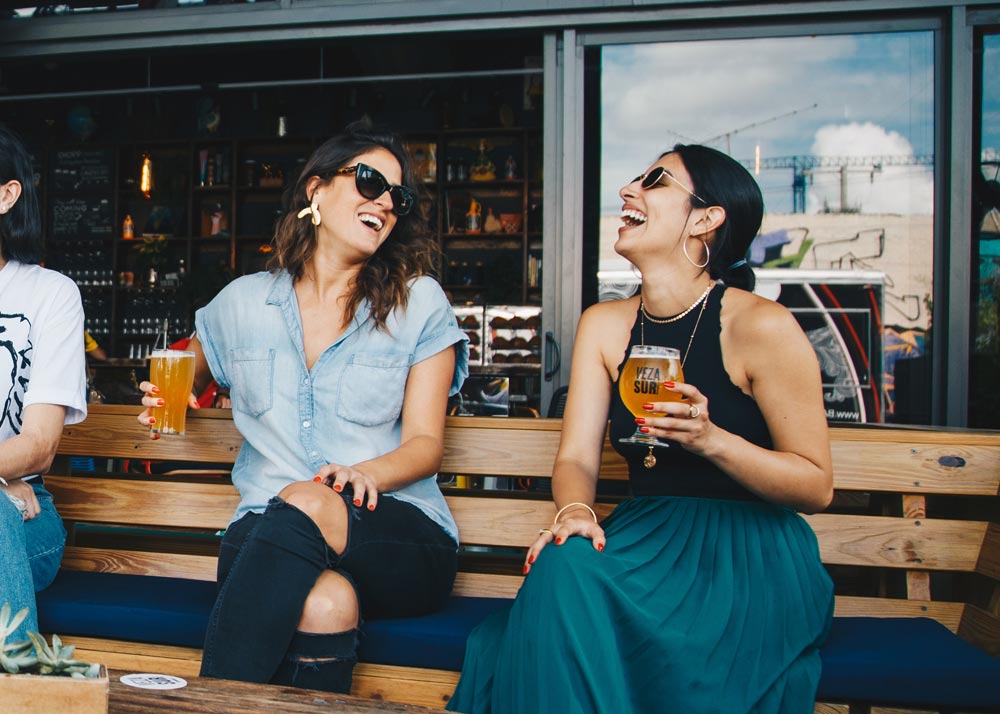 Non-alcoholic beer is quickly becoming massively popular across the globe. This is, in part, fueled by the rise of craft beer as a standard thing. But, it’s also being pushed by health-conscious individuals including recovering and “recovered” alcoholics. For many of us, non-alcoholic beer can seem like an easier way out of having to avoid drinking. After all, you can still get home and open a cold beer or drink with your friends to an extent.
Non-alcoholic beer is quickly becoming massively popular across the globe. This is, in part, fueled by the rise of craft beer as a standard thing. But, it’s also being pushed by health-conscious individuals including recovering and “recovered” alcoholics. For many of us, non-alcoholic beer can seem like an easier way out of having to avoid drinking. After all, you can still get home and open a cold beer or drink with your friends to an extent.
But, many of us also wonder if its safe. Is drinking non-alcoholic beer in recovery sustainable? Or does it allow us to continue habits that might eventually lead to addiction? While the jury is still out, the best advice is to use caution, to always pay attention to the label, and to treat non-alcoholic beer like a stand-in for something you’re addicted to – something that might continue the habit of the addiction.
Table of Contents
ToggleNon-Alcoholic Beers are More Alcoholic Than You Think
Any beer that has no alcohol in it at all is not a real beer. The fermentation process always produces alcohol. While you can filter some of it off or even cook it off, some traces of alcohol will remain. In fact, “non-alcoholic beer” is a label allowed on any beer containing 1.5% or less alcohol. So, a casual non-alcoholic beer could be as much as a third of a standard can of pilsener. That’s a massive difference if you’re looking for total abstinence.
Of course, you also get beers labelled as “0.0%”. These are offered by Budweiser, Miller, Heineken, and numerous, smaller craft breweries across the country. They contain less than 0.0% alcohol. That might be 0.09% alcohol, but it’s less than 0.0%.
Many people in recovery also look for malted beverages. These “near beer” brews aren’t fermented. Supermalt, one of the most popular, is actually alcohol free. Its closest competitor, Tortel, is 0.4%. So, you have to be careful there as well.
Drinking Non-Alcoholic Beer Could Trigger a Relapse
Drinking a beverage without alcohol can seem harmless. Especially when you’re trying to do something you use to enjoy and cravings are hitting, but, that’s precisely the problem. Drinking non-alcoholic beer can sustain and maintain cravings over a longer period of time.
Cravings – Cravings are based on behavior, expectations, and patterns build into the brain. You could call them “behaviors” or “habits”. The thing is, if you quit drinking, they go away. You might occasionally experience random cravings for something every few months and then every few years – but these cravings will stop being the persistent desire to open a beer and drink fairly quickly. If you regularly drink non-alcoholic beer, you’ll maintain those habits. The cravings will take longer to go away. And that could result in a relapse when you let your guard down. This has been backed up by studies, showing that even one exposure to the smell or taste of beer – such as smelling the remains of beer in a plastic cup – can significantly increase reported cravings for weeks after the exposure.
Be Brave. Get Help.
 Exposure – Triggers are factors that trigger a mental shift resulting in a relapse. For many people those triggers can be old hangouts, seeing people you used to drink with, the smell of beer, and the taste of beer. Drinking non-alcoholic beer can actually trigger a relapse. In fact, people exposed to the smell and taste of beer, even without alcohol, can trigger a relapse. Some people don’t even immediately recognize they want a drink. But, they’re significantly more likely to relapse in the weeks to months following the exposure.
Exposure – Triggers are factors that trigger a mental shift resulting in a relapse. For many people those triggers can be old hangouts, seeing people you used to drink with, the smell of beer, and the taste of beer. Drinking non-alcoholic beer can actually trigger a relapse. In fact, people exposed to the smell and taste of beer, even without alcohol, can trigger a relapse. Some people don’t even immediately recognize they want a drink. But, they’re significantly more likely to relapse in the weeks to months following the exposure.
Extending Habits – Most of us become substance abusers by building bad habits. For example, you come home, you open a cold beer, you drink it to destress. That’s a form of self-medication. It’s also a self-reinforcing mechanism that builds habit while increasing stress for the next day. And, the more you drink when you get home, the worse you feel and perform the next day at work or with kids. Low alcohol beers like alcohol free beers won’t give you a hangover (most likely) but they will allow you to sustain negative habits that contributed to addiction. If you’ve gone to recovery treatment, you know that the key to recovery is to build new, healthy habits. Not to engage in old ones or to sustain them.
In most cases, you simply want to avoid coming home and engaging in a ritual that involves a substance. Using food, drinks, or alcohol as a reward is always a bad idea. Instead, you should think of new and different ways to relax when you get home. Like taking 30 minutes out to meditate, do yoga, or walk the dog.
Does that Mean Alcohol-Free Beer is always Off the Table?
No. But it does mean that you should abstain for at least the first few years of recovery. If you do decide to try them after some time in recovery, you should do so after consulting with your doctor and then check up a few times. Drinking something that reminds you of something you were addicted to can always trigger a relapse. Therefore, it’s always important to be careful.
If you want something to drink or enjoy when out with friends, there are also plenty of no alcohol options. You might feel a bit lame drinking a diet Coke when out on the town, but chances are, you probably don’t want to be in a bar anyway. If you do go, ask for mocktails – which are recipes built around being alcohol free – as an alternative. Of course, your best bet is to do things with your friends that don’t involve alcohol.
Eventually, alcohol free beers can allow you to enjoy beer with a minimum of alcohol. However, it might not be safe for you to do so, especially in early recovery. Therefore, you’re recommended to avoid alcohol free beers as much as possible. And if you really miss the taste of beer, that’s a difficult thing to separate from addiction and cravings. Beer is a great beverage, but enjoying it is not worth your long-term sobriety.

 Matthew Beck B.A, M.A, LMFT
Matthew Beck B.A, M.A, LMFT 


